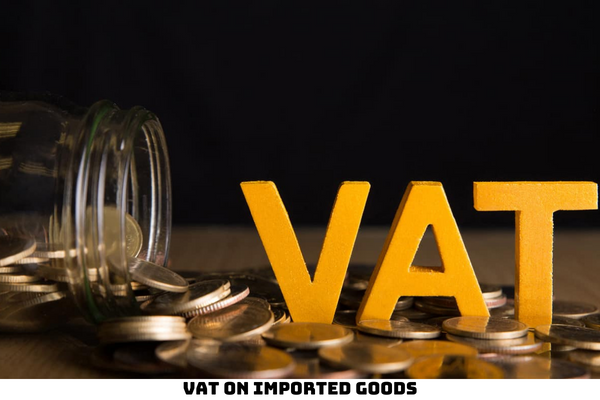Vietnam: How to calculate VAT on imported goods? What is the VAT rate applicable to imported goods?
How to calculate VAT on imported goods in Vietnam?
Pursuant to Article 6 of Circular 219/2013/TT-BTC as follows:
Tax basis
Tax basis is taxable prices and tax rates.
Accordingly, the formula for calculating VAT is:
VAT = value-added taxable price x VAT rate
In particular, according to Article 7 of Circular 219/2013/TT-BTC on the value-added taxable prices as follows:
Taxable prices
1. Taxable prices of goods and services sold by taxpayers are VAT-exclusive prices. Taxable prices of goods and services subject to special excise tax are the prices inclusive of special excise tax and exclusive of VAT.
Taxable prices of goods and services subject to environmental protection tax are the prices inclusive of environmental protection tax and exclusive of VAT; taxable prices of goods and services subject to both special excise tax and environmental protection tax are the prices inclusive of special excise tax and environmental protection tax but exclusive of VAT.
2. Taxable prices of imported goods are the prices at the border checkpoint (hereinafter referred to as import price) plus (+) import tax (if any) plus (+) special excise tax (if any) plus (+) environmental protection tax (if any). Regulations on taxable prices of imported goods shall be applied to the calculation of import prices.
If the goods are eligible for exemption or reduction of import duty, the taxable price is the import price plus (+) import tax payable after reduction or exemption.
3. Taxable prices of the goods and services (whether bought externally or not) used as gifts, donations, or substitute for wages are the taxable prices of the same kinds or equivalent goods and services at the same time.
...
4. Taxable prices of goods and services for internal use.
Taxable prices of the goods and services serving the business (internal use) are the taxable prices of the same kinds or equivalent goods and services at the same time when such goods and services are used. VAT on the goods and services serving the manufacture or trading of taxable goods and services may be declared and deducted.
...
21. In the case of service purchase in Clause 5 Article 3 of this Circular, the taxable price is the VAT-exclusive price written in the service contract.
22. Taxable price of the goods and services mentioned in Clauses from 1 to 21 includes the surcharges payable to the sellers.
...
According to the above provisions, taxable prices of imported goods are the prices at the border checkpoint as follows:
Value-added taxable price = Import price + import tax + special excise tax + environmental protection tax.
In particular, the import price at the border checkpoint is the price at the first border checkpoint.
Import tax (if any) = Import price at the border checkpoint x import tax rate (specified according to imported goods)
Special excise tax (if any) = (Import price at the border checkpoint + import tax) x excise tax rate (specified according to imported good)
Environmental protection tax (if any) = Number of taxable goods x tax rate per unit of goods
Thus, VAT on imported goods is different. For ordinary goods, some prescribed taxes shall be added to the taxable price.

What is the VAT rate applicable to imported goods in Vietnam?
Based on the Law on Value Added Tax 2008, there are currently 03 VAT rates including 0%, 5%, and 10%.
Specifically, according to the provisions of Circular 83/2014/TT-BTC guiding the implementation of value-added tax according to the List of imported goods in Vietnam, the VAT rate for imported goods will mostly be at 10%. A small number of regulated goods are subject to only the VAT rate of 5%. Some goods are subject to the VAT rate of 0% but are not imported goods.
Shall VAT on imported goods in Vietnam be deducted?
Pursuant to Article 14 of Circular 219/2013/TT-BTC stipulating the rules for deducting input VAT as follows:
Rules for deducting input VAT
1. Input VAT on goods and services serving the manufacture or sale of goods/services subject to VAT shall be deducted in full, including non-refundable input VAT on damaged goods.
Non-refundable input VAT on damaged goods may be deducted in an event of a natural disaster, blaze, damage that is not covered by insurance, or degraded or expired goods that must be destroyed. The taxpayer must present sufficient documents to prove the damage not covered by insurance.
...
Accordingly, input VAT on imported goods and services for production and business activities will be deducted.
Thus, imported goods subject to VAT will be deducted in the case VAT invoices are used in contravention of the provisions of the law such as:
- The VAT invoice is not legitimate, such as VAT is not written (except for special invoices on which selling prices are VAT-inclusive);
- The invoice does not contain or does not contain the correct name, address, or TIN of the seller, thus rendering the seller unidentifiable;
- The name, address, or tax code of the buyer on the invoice is incorrect (except for the case in Clause 12 of Article 14 of Circular 219/2013/TT-BTC);
- The VAT invoice or the receipt for VAT payment is fake; the invoice is changed or fictitious (made without actual sale);
- The invoice does not reflect the actual value of goods and services.
LawNet